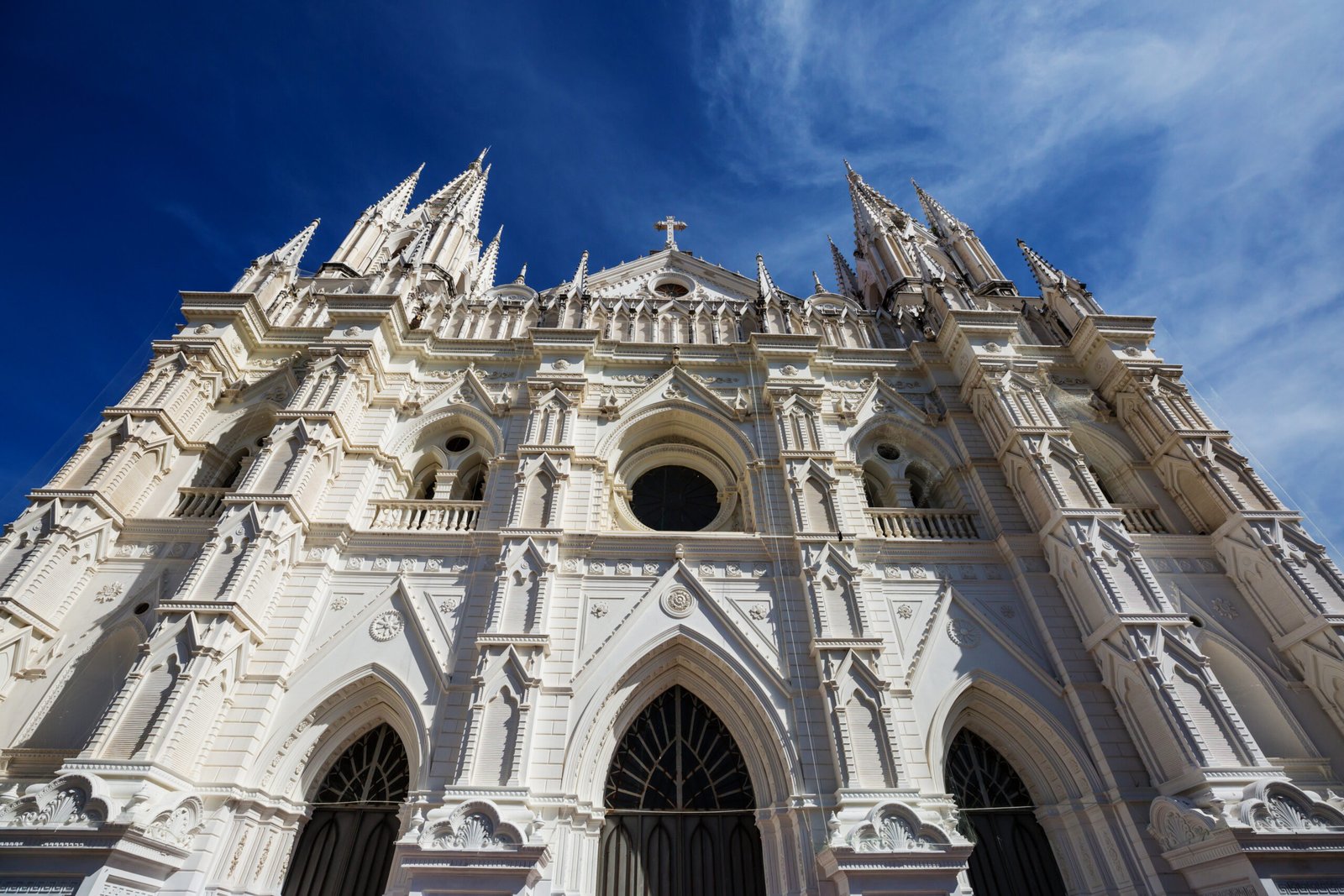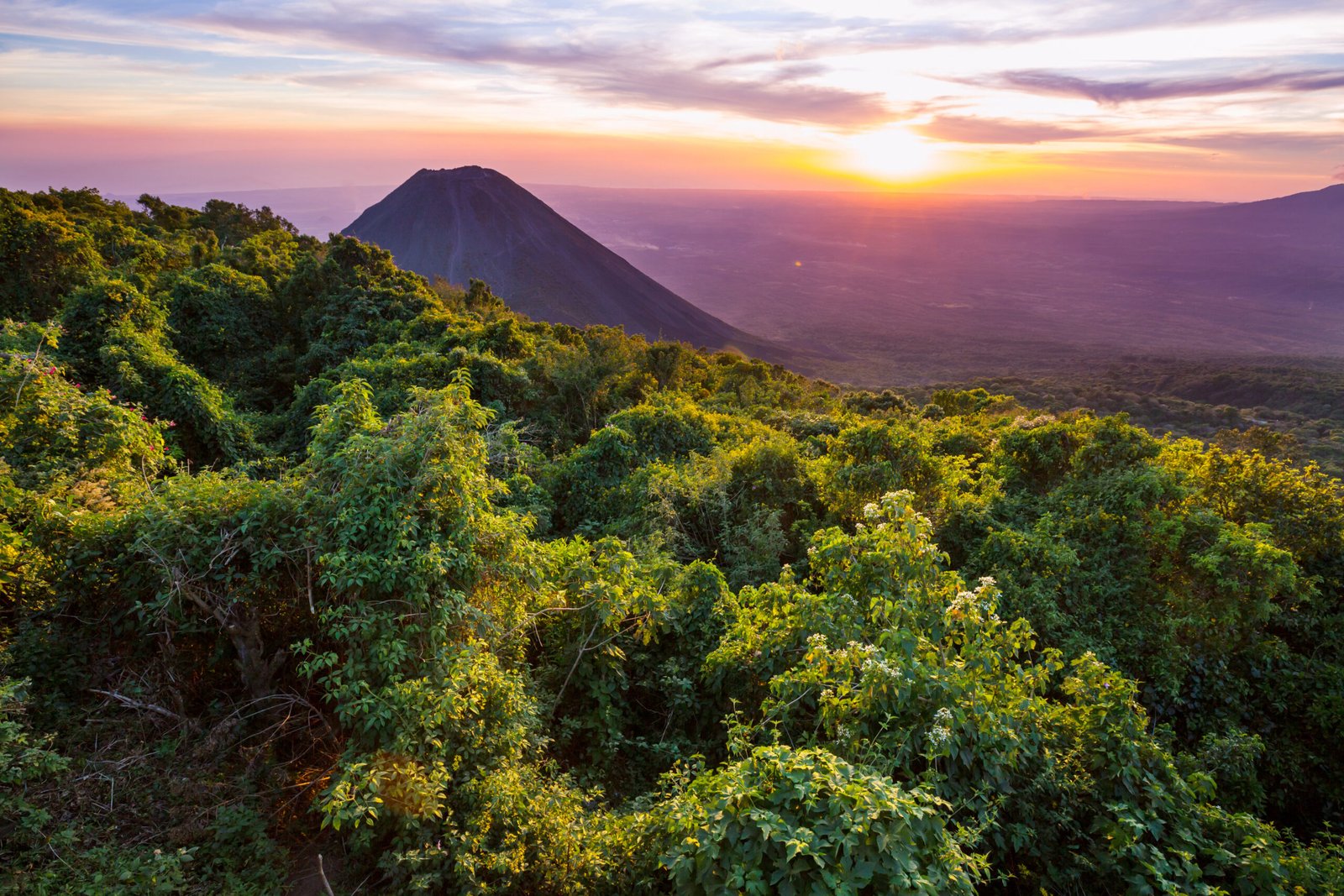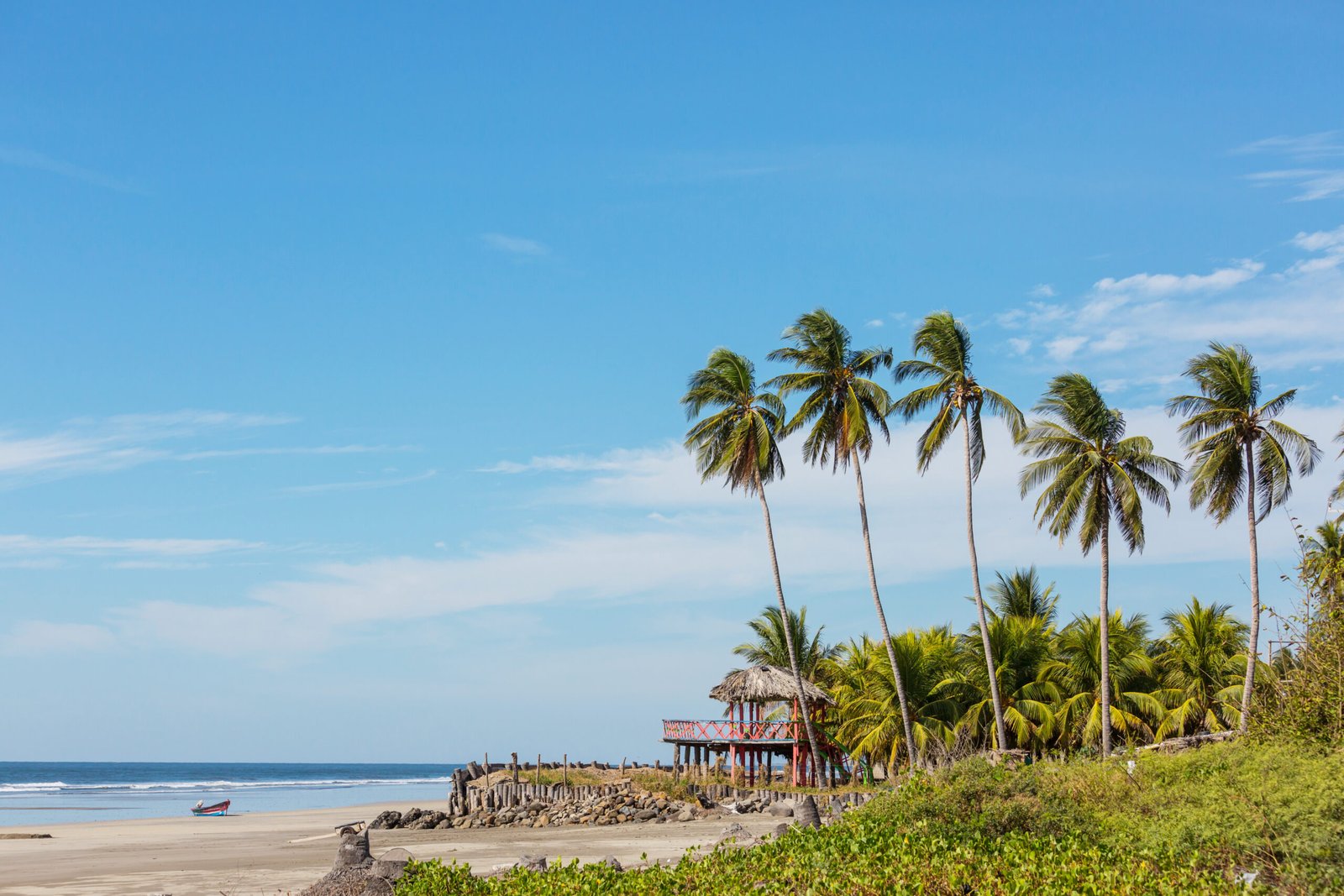
Beautiful colonial architecture in El Salvador
Teaching English in El Salvador is a remarkable opportunity to make a meaningful impact while experiencing the vibrant culture and rich history of Central America. By sharing your language skills, you can empower students with the tools they need to succeed in a globalized world, opening doors to better educational and professional prospects. Additionally, living and working in El Salvador offers a unique chance to immerse yourself in its warm, welcoming communities, beautiful landscapes, and diverse traditions. Join the growing number of ESL teachers who are making a difference and discover how rewarding it is to teach English in this dynamic and inspiring country.

Sacred Heart Basilica in the capital of San Salvador
The capital and largest city, known for its vibrant culture, historic landmarks, and bustling markets.
Cultural and Historical Treasures:
Nature and Adventure:

Enchanting Coatepeque Lake, Santa Ana
Famous for its beautiful architecture, including the Santa Ana Cathedral and the National Theatre.
Colonial Charm and Architecture:
Natural Beauty and Exploration:

Stunning views of a Volcano in Cerro Verde National Park at sunset
Known for its lively festivals, particularly the annual Carnival of San Miguel.
Vibrant Festivals and Cultural Richness:
Natural Wonders and Adventure:

Homemade Salvadoran Pupusas with Curtido and Salsa
El Salvador offers a rich and diverse culinary landscape that reflects its cultural heritage and vibrant traditions. Here are five unique foods to try:
Pupusas: Pupusas are the national dish of El Salvador, consisting of thick, handmade corn tortillas stuffed with a variety of fillings such as cheese, beans, chicharrón (pork), or loroco (an edible flower bud). Typically served with curtido (a tangy cabbage slaw) and a mild tomato salsa, pupusas offer a delightful blend of flavours and textures.
Yuca Frita con Chicharrón: This popular street food pairs deep-fried yuca (cassava) with crispy pieces of chicharrón (fried pork belly or rinds). Often served with curtido and a drizzle of tomato sauce, this dish is a savoury treat that combines the crunchiness of yuca with the richness of pork.
Sopa de Pata: Sopa de Pata is a hearty soup made with cow’s feet, tripe, yuca, corn, and various vegetables. Known for its rich and flavourful broth, this traditional soup is often enjoyed as a comforting and nourishing meal.
Pan con Pollo: Pan con Pollo is a popular Salvadoran sandwich made with marinated and roasted chicken served in a fresh baguette-style bread. The sandwich is typically garnished with a variety of fresh vegetables, hard-boiled eggs, and a generous drizzle of homemade tomato sauce, creating a satisfying and flavourful bite.
Quesadilla Salvadoreña: Not to be confused with the Mexican quesadilla, this is a sweet, cheese-flavoured cake made with rice flour, sugar, and queso fresco (fresh cheese). Often enjoyed with a cup of coffee, this dense and moist cake has a delightful sweetness and a subtle cheese flavor, making it a perfect treat for dessert or breakfast.
 People and Culture
People and CultureEl Salvador, the smallest and most densely populated country in Central America, is known for its warm, hospitable people and vibrant culture. The Salvadoran people, or “Salvadoreños,” are renowned for their friendliness, resilience, and strong sense of community. Family ties are deeply valued, and social gatherings often revolve around family events and celebrations.
Cultural Heritage: El Salvador’s culture is a rich tapestry woven from indigenous traditions and Spanish colonial influences. The country’s indigenous heritage, primarily from the Pipil and Lenca peoples, is reflected in its traditional crafts, music, and folklore. Despite centuries of Spanish colonization, these indigenous roots remain a vital part of Salvadoran identity.
Festivals and Celebrations: Salvadorans celebrate numerous festivals throughout the year, each marked by vibrant parades, music, dancing, and traditional foods. One of the most notable is the “Fiestas Agostinas” in August, honouring the Divine Saviour of the World, the patron saint of the country. Another major celebration is the “Carnival of San Miguel,” one of the largest and most colourful festivals in Central America, featuring lively parades, music, and dance.
Music and Dance: Music and dance are integral to Salvadoran culture. The country’s music scene is diverse, ranging from traditional folk music, such as “Xuc,” to modern genres like salsa, cumbia, and reggaeton. Dance is often a central part of celebrations and festivals, with traditional dances like “El Torito Pinto” and “Las Cortadoras” being popular.
Art and Handicrafts: El Salvador has a vibrant tradition of art and handicrafts. Artisans produce beautiful works in ceramics, textiles, and wood. Towns like La Palma are famous for their distinctive folk art, characterized by bright colors and simple, joyful motifs depicting everyday rural life.
Contemporary Culture: Modern Salvadoran culture is a dynamic blend of traditional practices and contemporary influences. Urban areas like San Salvador are cultural hubs with theatres, museums, and galleries showcasing both traditional and modern art. The youth culture is vibrant, influenced by global trends in music, fashion, and technology, yet still deeply connected to their cultural roots.

Relax on the beaches of El Salvador
All that is required to teach English in El Salvador is a TESOL Certification, such as TESOL Australia’s exclusive International TESOL Certificate.
Teaching English in El Salvador offers a unique opportunity to make a meaningful impact while exploring a country rich in culture and history. The welcoming and resilient Salvadoran people are eager to learn, and your efforts can open doors to better educational and professional opportunities for them. The main cities, including the bustling capital San Salvador, the architecturally splendid Santa Ana, and the vibrant festival hub of San Miguel, are each within a one-hour drive to beautiful beaches, providing a perfect balance of urban and coastal living. Immerse yourself in the local traditions, enjoy delicious cuisine, and make a difference by teaching English in this dynamic and inspiring country.